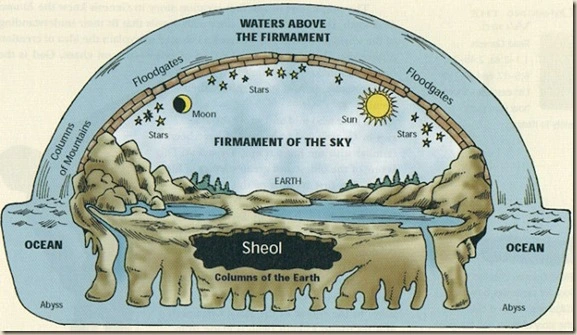Sheol: The Hebrew Underworld

What is Sheol?
The word “Sheol” is itself controversial in meaning and has divided critics. It usually refers to a grave, but also to the idea of an abyss. It is considered a borrowed term of Assyrian-Babylonian origin that referred to “a place where the dead gathered.”
Critics also often relate it to the epic of Gilgamesh. It would be equivalent to the version Hebrew of the Sumerian Irkalla, also called the House of Dust and Darkness, where all the dead would be greeted and fed on ash for all eternity.
The main references to Sheol come from Genesis, being Jacob who, before the death of Joshua, exclaims the possibility of descending to Sheol.
In the book of Isaiah 14:15, Sheol is established as a deep place, underground and close to sunset, and at the extreme “farthest from paradise”. In the book of Job 7:9, Sheol is a fenced land where the dead can be found. Both rich and poor, pious and wicked, old and young, slaves and their masters. It is important to note how ancient the Book of Job is, given it reflects how this concept and idea of Sheol has existed from the very beginning.
The dead are considered shadows of what they were in life and have the tendency to continue the same way of life, like the one they carried on the surface. The dead only exist, without reason
or feelings.
Silence and oblivion rule, it is an existence without being able to pray to God. The dead are described as sleepers in the dust.
In this ancient form, all possibility of the return of Sheol is denied. Still, the supremacy of god over Sheol is recognized who is sometimes personified in feminine terms. God can save the benevolent if he wishes, but the hunger for Sheol is insatiable. The books of Job and Isaiah offered no comfort.

Flat Earth Representation of the Cosmos
Overall, the idea of Sheol is a great family grave for the worldview of the Jewish people in exile.
Comparison
The idea of an afterlife does not develop notably in their mythology. There is a presumption of the afterlife and a possible resurrection through the messianic age, but neither of these ideas is directly embodied in the Old Testament.
Sheol, as well as other envisioned versions of “Hell” can be understood as places where corpses met to “exist”, “be”, and remain there for all eternity, without awareness of their existence, without reason or feelings. Unlike the others, Sheol does not contemplate any merit, including both pious and wicked.
Sheol is personified as a female, monstrous and insatiable entity, and although Yahveh is established as sovereign, it lacks a deity specifically assigned to its government, as happens with Hel (banished by Odin) and Hades (a division of the sky-sea world- Underground).
These sovereigns had a palace, lands, and servants actively described in mythology. With these ideas, we can think of the vision of the afterlife that very different ancient cultures
possessed, always agreeing that the dead were in a separate and divided place from the world of the living. A place that did not necessarily contemplate the possibility of return or a resurrection.
And more importantly, the idea of punishment and torment for the deceased. It is true that the Norse and sometimes the Greek refers to an eternal festive state for warriors and heroes, but those who lacked these characteristics were not necessarily ‘doomed’ in Christian terms. His condemnation would be to exist in an undefined, gray, and mindless state and the inability to pray to God.
The Hebrew Sheol shares similarities with the Sumerian Kur, the land of the dead. Both are places of darkness, where hope is futile.
Christianity branches off ancient Judaism and reworked the concept. They adopt the name Sheol and transform it into “Hell”. Elements of fire and torment are added into the belief, there is more than just the gray oblivion Sheol initially depicted. Heaven will be rewarded to the believers, just the genuine conversion into Christianity can lead to Heavens, regardless of the acts in life. A sinner who, at the moment of death, accepts God into their heart, will be allowed into Heaven. This is different from the Judaic tradition, where the recollection of deeds in life granted access to Heaven.
Sources
The Old Testament. Books of. Genesis. Job, Isaiah
Featured Image: Fallen Angels in Hell. John Martin (1789–1854)
Jewish Encyclopedia http://www.jewishencyclopedia.com/articles/13563-sheol
Theological Wordbook of the Bible. Westminster John Knox Press.
Zimmern in KAT 3d ed., Ii. 641, 642, Berlin, 1903







